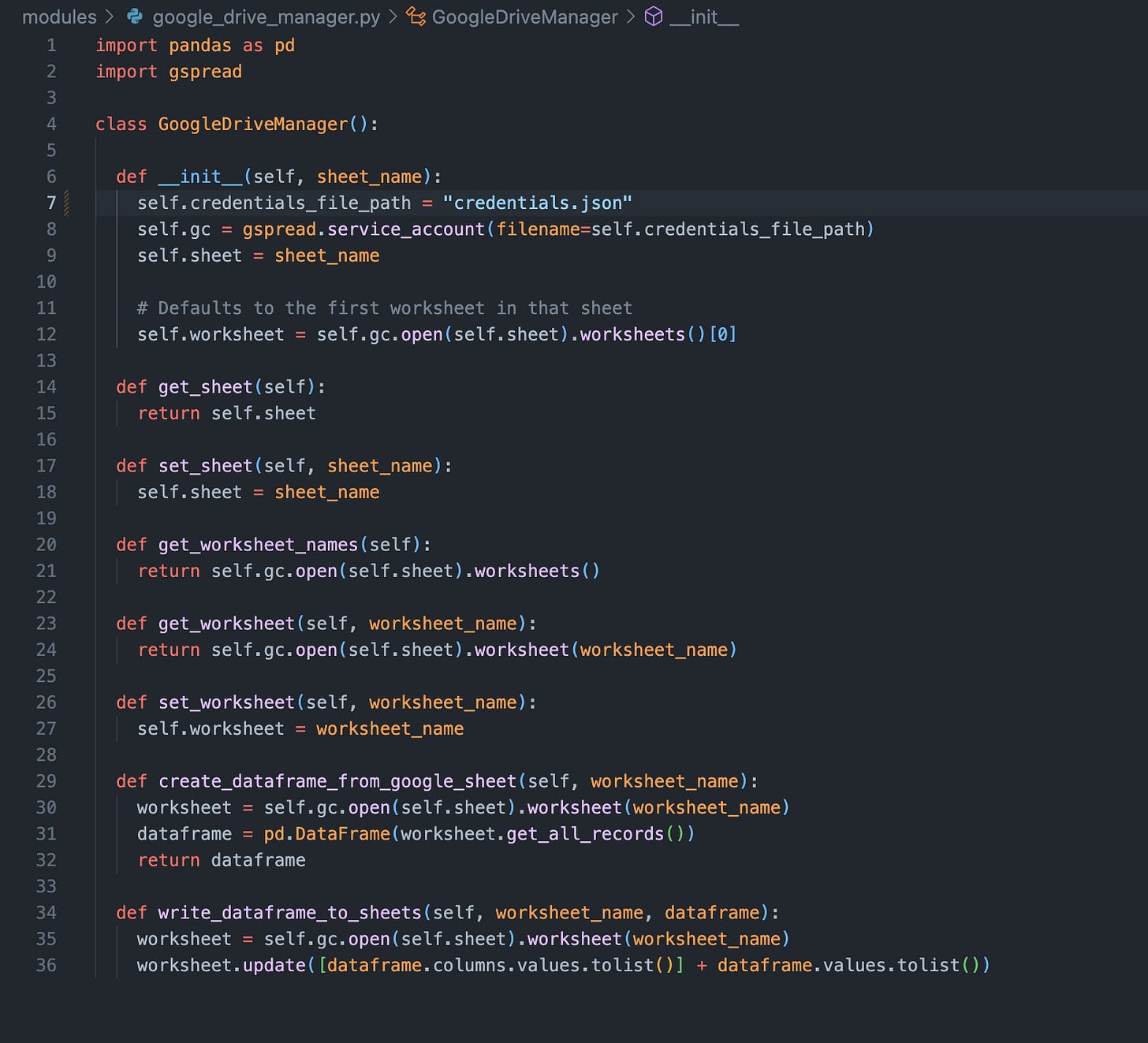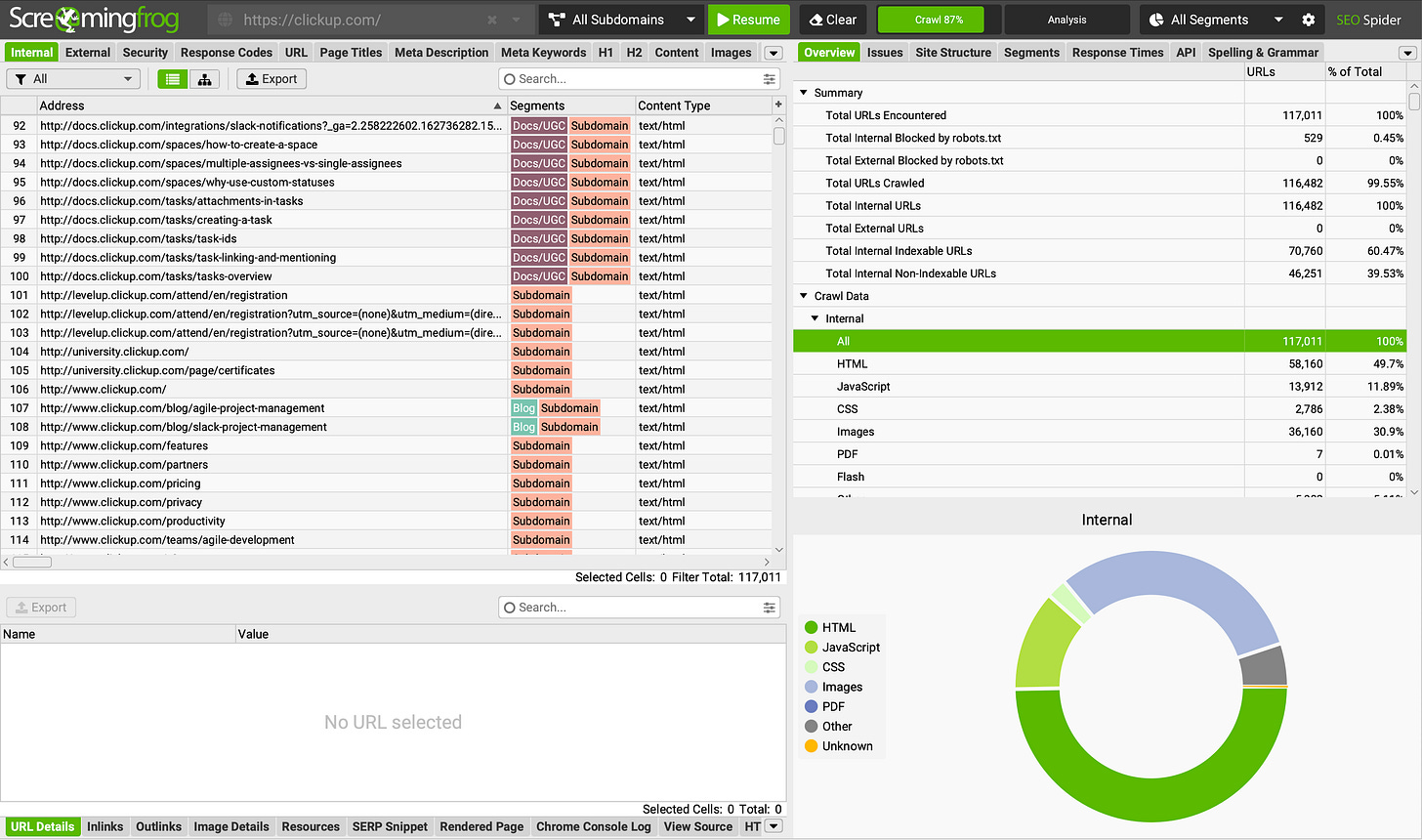A New Kind of "Search Engineering"
A new path forward for technical SEOs in the age of AI and infinite scale.
My Journey with SEO
I've spent the last half-decade of my career in a lot of different subcategories of SEO.
I started freelance writing to make ends meet when my wife was in college and I was just a barista
I managed my own freelance clients in eCommerce, Local SEO, and other verticals
I launched my own niche site on specialty coffee for testing and experimentation
I worked 70-hour weeks to manage more than 30 clients by myself in the first 6 months of a startup agency
18 months later, I built a 3-week intensive to train all the new hires on the SEO team at that same agency.
After a round of layoffs, I found myself managing a team of 4 SEOs and their $500k of MRR
Within a few months of that, I was directing the entire team of nearly 15 SEOs, responsible for more than $1.5 million a month in revenue across the team
And yet, despite all that growth and success, I left the agency world to go in-house with a SaaS company. Why?
Why would I abandon a path of leadership & influence to go do "technical” SEO? It wasn't for the money, I’ll tell you that.
If I had stayed in the agency world, I could have made at least 30-40% more.
Instead, it's because I see something special happening in the world of technical SEO right now. So special, in fact, that I think it will completely redefine how we think of what a “technical” SEO professional does.
And I want to lead the charge.
Give me a few minutes of your time, and I’ll explain what I mean. And hopefully, you’ll be able to apply some of this to your own work.
Explaining “Technical SEO?”
When most people hear the term "technical SEO," they think boring, mundane health checks. We think about things like:
Making sure Google can crawl and index a website
Robots.txt files
Server log files
Managing crawl budgets
Managing Screaming Frog crawl limits
Internal link optimizations
Even Hubspot defines it this way:
Technical SEO refers to anything you do that makes your site easier for search engines to crawl and index… - Hubspot
And while all these things are true, and they are a part of technical SEO there's a key piece missing.
When you look at technical SEO as, first, a way to make your site "easier for search engines to crawl and index," that limits your impact.
You are seeing it as a way to remove things that prevent growth—not be a driver of growth on it's own.
And for a long time, that's really all technical SEO could be—especially on smaller sites. Until you have tens of thousands of pages, crawl budgets aren't worth worrying about.
When you have 100 pages total, managing the internal link profile is as simple as running a Screaming Frog crawl, visualizing the links, and making new ones where you need them.
But when your site has 10,000, 50,000, or 1,000,000 pages to audit and understand—the job becomes an entirely different thing.
Or, if your site is small, you don’t need to limit yourself to these small ideas. The skillset you build to do this work can make you invaluable in an organization.
It makes you more than a marketer—it makes you a problem solver.
And with the shifting tides of Google, AI, and everything else that’s changing—that skill only becomes more useful.
Moving Beyond “Technical SEO”
The crux of my argument, and reason for writing this entire newsletter, is this:
Technical SEO, as we know it today, is becoming a thing of the past. SEOs will have to either expand into more general organic growth or build their engineering skills to continue to have an impact.
I’m choosing to term this new frontier of SEO “Search Engineering.”
I know this term is already used to describe software engineers that work on search engine products. But it fits too well to not at least try it on.
What I hope to do over time is convince you that a "technical SEO" professional can't just be a marketer anymore—they need to be an engineer.
If you want to go the opposite path—brand building and “organic growth,” that’s amazing, too. That’s just as valuable and important in the new marketplace. But, if you’re more technically minded like me, there is another path.
As tooling evolves, websites get bigger, automation becomes more feasible, and AI makes the internet a much more daunting place to navigate.
The need for a dedicated bridge between organic growth and engineering is only going to grow. My hope is that I (and you, if you follow along) can get ahead of this shift.
What Search Engineering Could Mean For You
One of the biggest frustrations I see online, particularly with technical SEO, is a struggle to get recommendations implemented. Engineering resources are expensive, and it's hard to explain why you need their help to do something that doesn't have immediate, tangible business impact.
What if you could write the code yourself? What if you could automate the implementation of your SEO tool's internal link recommendations, all on your own?
What if you knew enough about data structures and algorithms that you could design your own model for PageRank within your site to find the best internal links? (Think Kevin Indig's TIPR model)
What if you could automate dozens of processes with Google Sheets and Google Docs? It could free your time up away from basic, routine checks and balances and could instead spend your time on big, moonshot ideas that actually drive new growth for the business?

That, I believe, is where this discipline has to go. It's not enough to be a technical SEO that knows a little bit of HTML and CSS anymore. We need to be our own kind of Engineers—solving problems and creating new opportunities within the business that no one else is positioned to do.
My aim here is to help that make sense for you—even if it doesn't right now. Even if the idea of writing Python terrifies you and you don't know anything about how to program—I promise it's possible. And the career that awaits you on the other side is worth the work.
And if you're already on this journey with me—welcome aboard. I hope we can learn from each other along the way.


